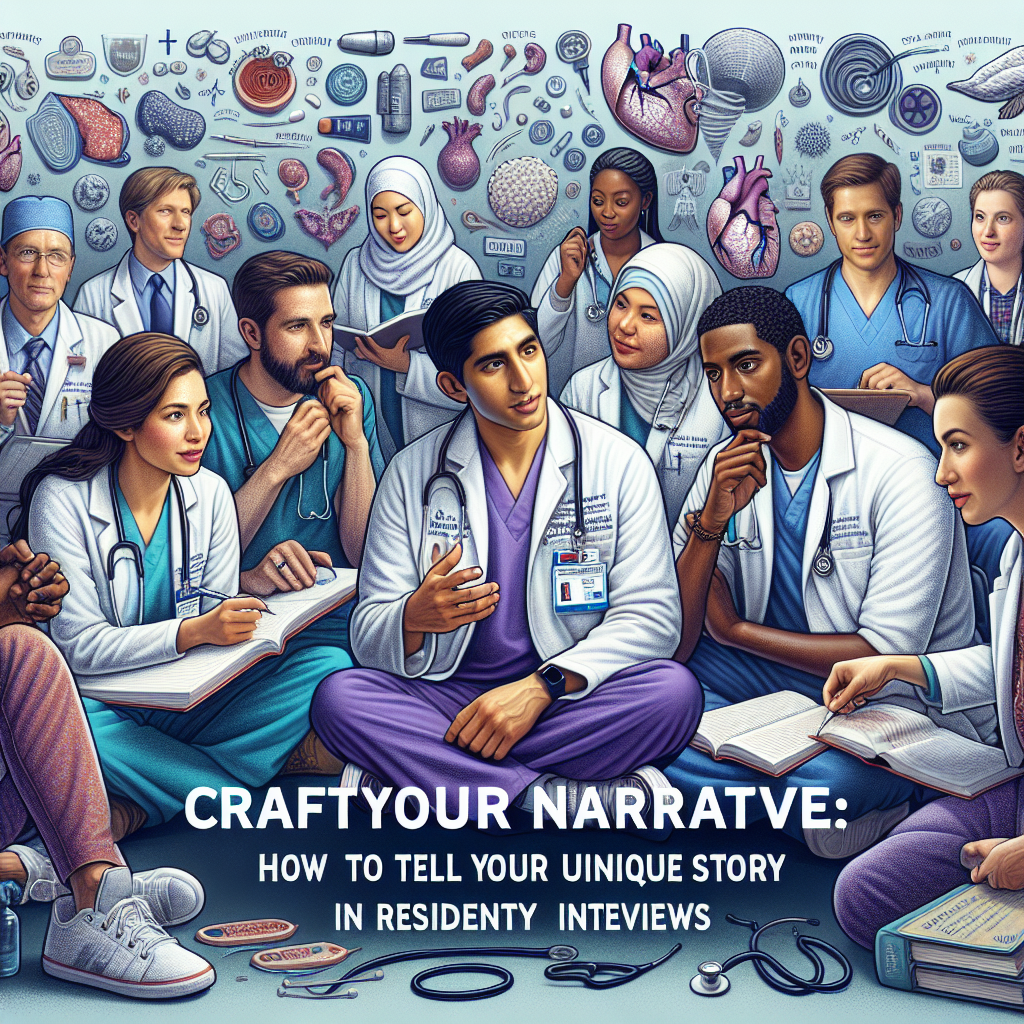Residency interviews are pivotal moments in the journey of every medical professional. They allow candidates to showcase their unique skills, experiences, and personal journeys. However, standing out in a sea of impressive candidates can be daunting. One effective way to make a lasting impression is by crafting and sharing your unique narrative. In this article, we’ll explore how to shape your story for residency interviews, ensuring it resonates with interviewers and reflects your authentic self.
Understanding the Importance of Your Narrative
Your narrative isn’t just a recount of your experiences; it’s the lens through which interviewers view your potential. A well-crafted story can:
- Highlight Your Strengths: Emphasize the qualities that make you a strong candidate, including resilience, empathy, and dedication.
- Reflect Your Values: Show how your experiences shaped your approach to medicine and patient care.
- Create Connection: Engage interviewers on a personal level, making you more memorable.
Identify Key Themes in Your Journey
To begin crafting your narrative, reflect on your journey so far. Consider the following elements that can serve as the foundation of your story:
Personal Background
Your background can provide context for your motivations and aspirations. Consider significant life events, cultural influences, or family expectations that shaped your desire to pursue medicine. Sharing these details can help interviewers understand your commitment and perspective.
Turning Points
Identify pivotal moments in your journey that altered your path or solidified your decision to enter the medical field. These could include challenging experiences, inspirational encounters, or critical lessons learned in clinical settings. Such turning points can serve as powerful anchors in your narrative.
Unique Experiences
Reflect on unique experiences that differentiate you from other candidates. Whether it’s volunteer work, research projects, or international medical missions, these experiences can illustrate your diverse skill set and character traits that would benefit your future residency program.
Structure Your Story Effectively
Once you’ve identified the key themes in your journey, it’s essential to structure your narrative in a compelling way. Aim for a format that flows well and is easy to follow:
1. The Hook
Start with a captivating hook that draws your audience in. This could be a personal anecdote, a surprising statistic, or a thought-provoking question related to your journey. The goal is to pique the interviewer’s interest right away.
2. Rising Action
Next, build your narrative by discussing the experiences, challenges, and lessons that contributed to your journey. Be honest and transparent about the hurdles you faced—sharing struggles can humanize your story and reveal your perseverance.
3. Climax
Highlight the turning point or moment of clarity that propelled you toward your decision to enter residency. This is often the emotional peak of your narrative, showcasing the depth of your commitment to medicine.
4. Resolution
Conclude your story with a clear resolution. Discuss how your past experiences have prepared you for residency and how they’ll influence your future practice. Make sure to connect back to the program you’re applying for, demonstrating your alignment with its values and goals.
Practice Your Delivery
Telling your narrative is as important as crafting it. You want to deliver your story with confidence and authenticity. Here are some tips to consider:
Rehearse, Don’t Memorize
Practice telling your story multiple times to get comfortable with its flow. However, avoid memorizing it verbatim to ensure your delivery remains genuine and conversational.
Seek Feedback
Before your interviews, share your narrative with trusted mentors or peers. Their feedback can help you refine your story, making it clearer and more impactful.
Prepare for Questions
Anticipate follow-up questions related to your narrative. Interviewers may seek clarification or deeper insights into your experiences. Be ready to expand on specific points, reinforcing your narrative and showing your depth of knowledge.
Embrace Authenticity
The key to a powerful narrative is authenticity. Be yourself and let your passion for medicine shine through. Sharing personal stories, struggles, and triumphs will create an emotional connection with your interviewers, setting you apart from other candidates.
Conclusion
Crafting your narrative for residency interviews is a vital process that can significantly impact your chances of success. By identifying key themes, structuring your story effectively, practicing your delivery, and embracing authenticity, you can create a compelling narrative that reflects your unique journey. Remember, you’re not just applying to a residency program; you’re sharing a part of who you are. With a well-thought-out narrative, you can leave a lasting impression that resonates long after your interview.
Craft your story. Share your passion. Shine bright in the competitive world of residency interviews.


